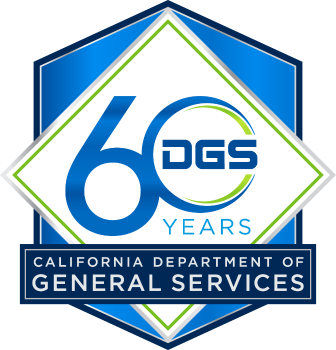Adverse Action
An adverse action is a formal administrative action taken to correct an employee’s on-the-job behavior or performance. It imposes one or more penalties: official reprimand, salary reduction, suspension without pay, demotion or dismissal. The various causes for discipline are described in Government Code (GC) section 19572.
The appointing power, or its authorized representative, may take adverse action against a non-managerial employee in accordance with GC section 19574.
Employees designated as managerial under GC section 3513 from the beginning of his/her current appointment, but whose positions are not in the Career Executive Assignment (CEA) category, shall be subject to the adverse action process stated in GC section 19590.
Process
The following stages briefly describe the disciplinary process.
| STAGE | ACTION |
| 1 |
Informal Consultation Supervisors/managers should contact the Constructive Intervention Unit (CIU) to discuss the most appropriate constructive intervention (formal vs. informal action) and the documenting of performance issues or to inform of a forthcoming request for formal adverse action. |
| 2 |
Formal Request for Action The office submits a chronology of the specific incidents of poor performance/conduct, with supporting documentation, and Adverse Action Information Summary (DGS OHR 1000) form, to the CIU consultant. Investigation of incidents and preparation of the chronology and supporting documentation is the responsibility of the supervisor/manager requesting the action. The supervisor must ensure management support of the action being pursued. |
| 3 |
Review of Case The CIU consultant reviews chronology and documentation and recommends penalty. The CIU consultant discusses with the supervisor as necessary, including continued constructive intervention, if employee is not being terminated. |
| 4 |
Preparation of Notice of Action The Office of Legal Services (OLS) prepares a draft “Notice of Adverse Action” and recommends appropriate penalty. The draft is sent to the supervisor/manager for review, clarification, and further substantiation. |
| 5 |
Final Preparation/Signature of Notice of Action The Program obtains the necessary Office Chief’s/Deputy Director’s signature on the final notice. |
| 6 |
Service of Notice of Action Once the “Notice of Action” is signed, OLS arranges to have the action served; and distributes copies to the office, the State Personnel Board (SPB), and Office of Human Resources (OHR). All documents upon which the action is based are attached to the original notice when it is served on the employee. Actions may be served either in person (by the office or process server) or by certified mail. If the action is for termination, the CIU may prepare an Administrative Time Off letter to be served simultaneously with the action, as authorized by the office taking the action. OHR internal distribution of the “Notice” by the CIU consultant upon receipt from OLS is as follows:
|
| 7 |
Appeal Rights To Appointing Power (Skelly/Coleman Hearing – “due process”) – Prior to effective date of the action, the employee has the right to respond to the department, as specified in the action. The person indicated in the “Notice” will coordinate the scheduling of the hearing with a “Skelly/Coleman Officer” (a person who is from outside the office taking the action). This hearing does not involve a cross-examination of witnesses. It is the employee’s opportunity to present his/her side of the story. CIU will notify the office regarding the date and time of the hearing; the Skelly/Coleman Officer makes a recommendation to the appointing power either to sustain, modify, or revoke the action. A modification to the action is generally based on new facts presented at the hearing. To State Personnel Board (held before an Administrative Law Judge with cross-examination of witnesses) – Regardless of whether an employee requests a Skelly/Coleman Hearing, s/he has the right to file an appeal with SPB within 30 calendar days of the effective date of the action. The Department receives written notice of an appeal once a hearing is scheduled. CIU and/or OLS will notify the office regarding the date and time of the hearing so that release time can be authorized. OLS represents the Department at the SPB hearing and will meet with prospective witnesses in advance of the hearing. |
Resources
Responsible Control Agency
- State Personnel Board
Laws and Regulations
- Government Code section 3513, 19570-19589, 19590, 19682
- SPB, Subchapter 1.2 Hearings and Appeals, Articles 1 through 6 Sections 51-60.10
Other Resource Materials
Contact
Department of General Services
Office of Human Resources
West Sacramento, CA 95605
Contact your assigned Constructive Intervention Consultant.
